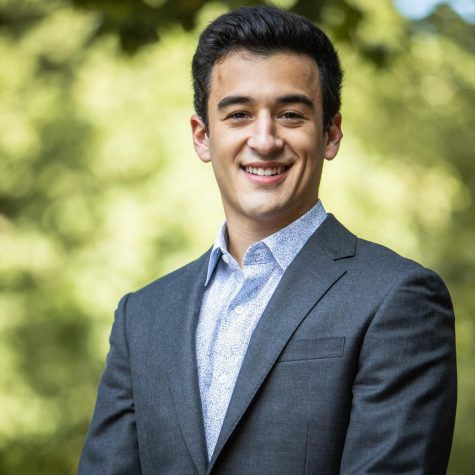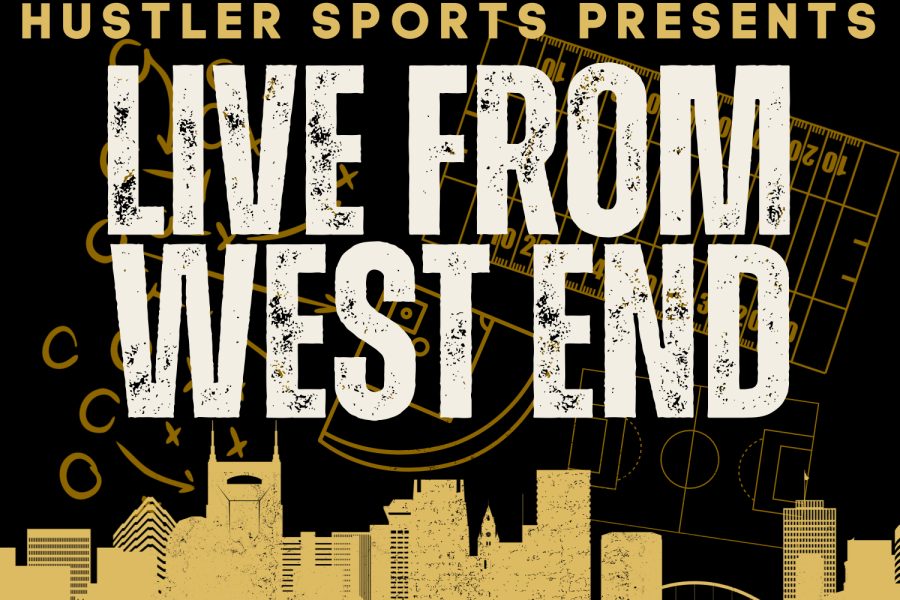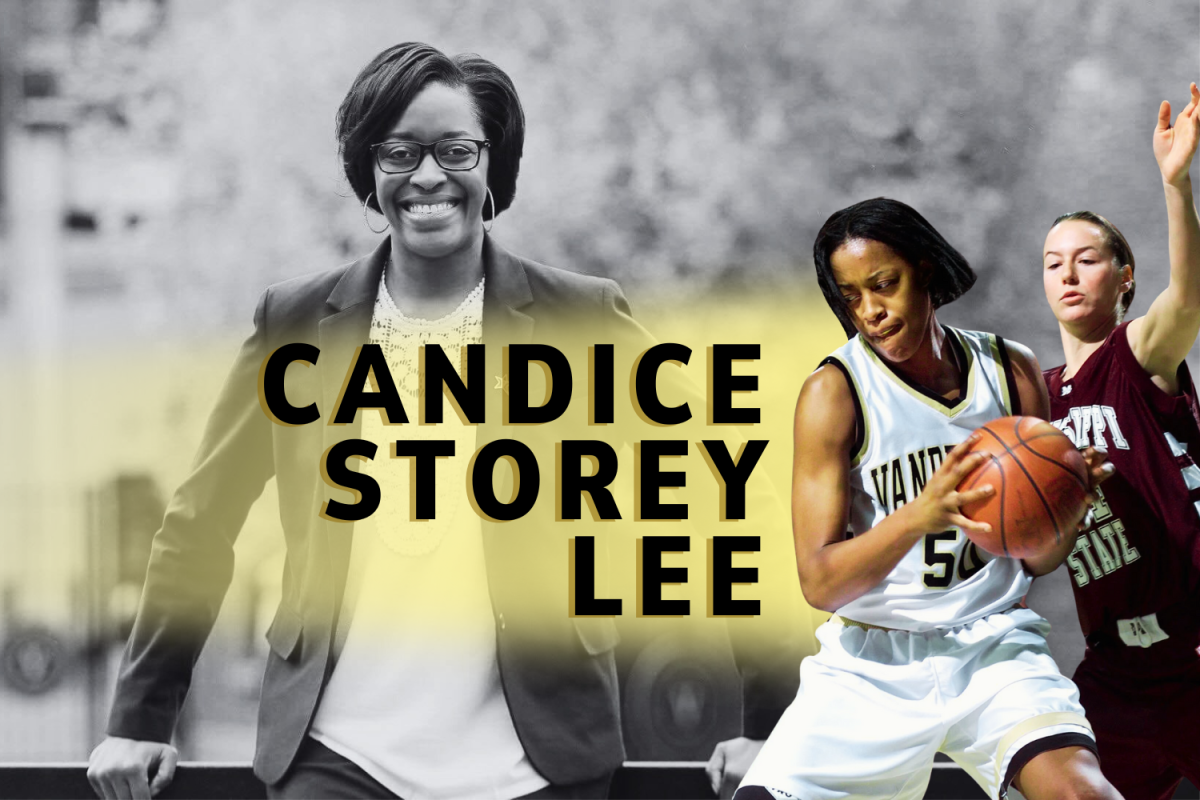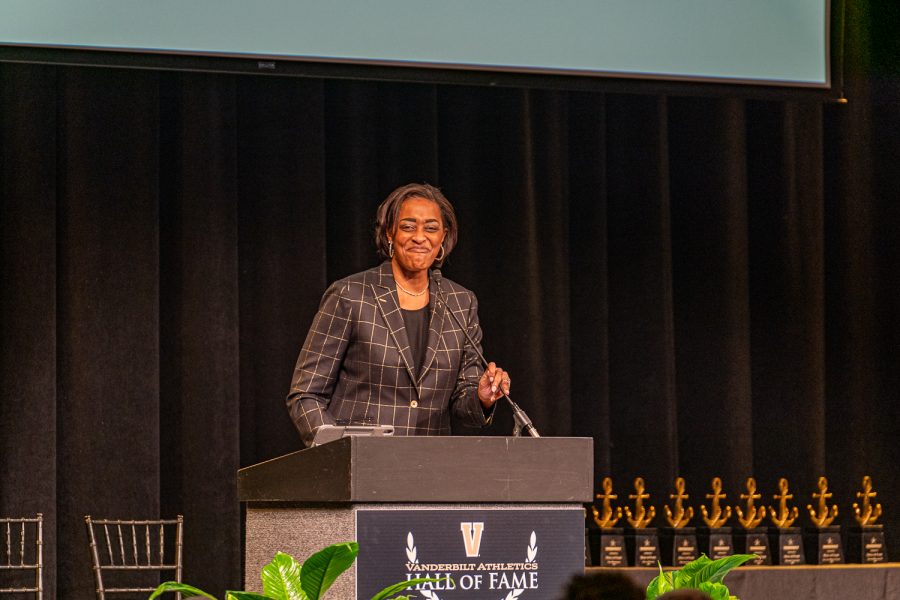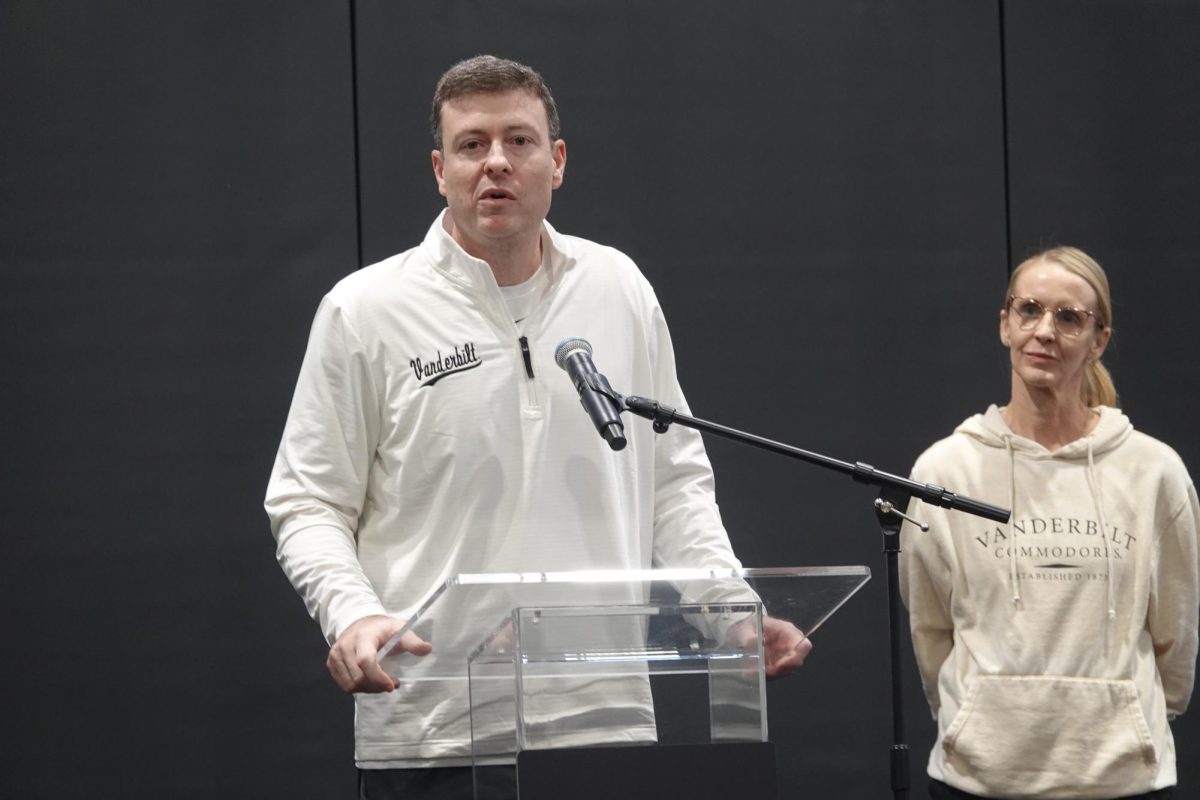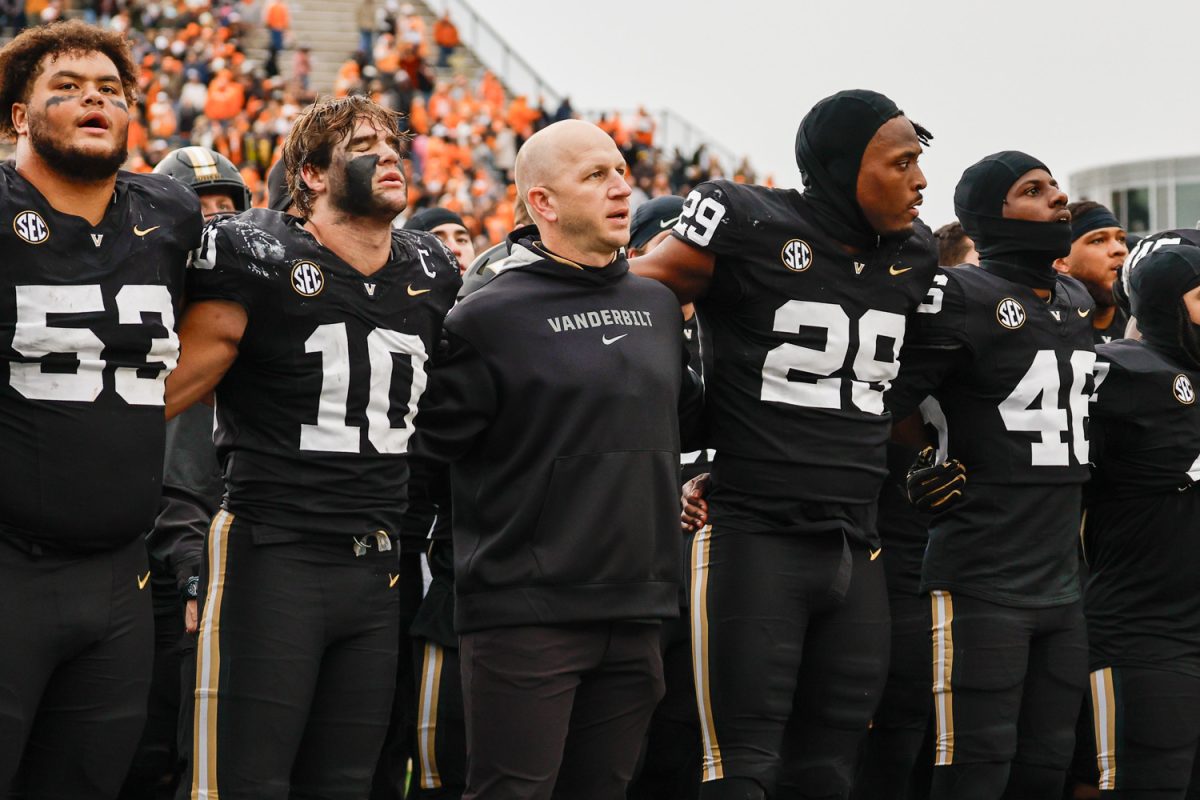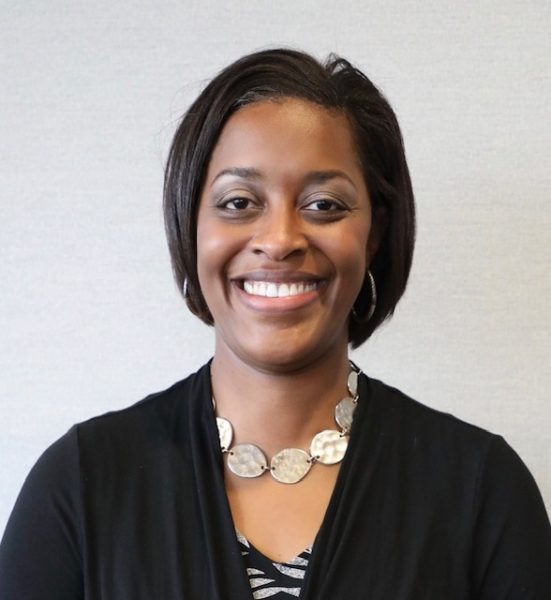
Former student-athlete and three-time Vanderbilt graduate Candice Storey Lee was named Vanderbilt’s athletic director on Thursday morning. Lee had previously held the title on an interim basis following Malcolm Turner’s resignation in February.
Lee has been a member of the athletic department for almost 20 years, serving as deputy athletic director and senior woman administrator. She spoke to The Hustler on Thursday afternoon to discuss her outlook for the athletic department and what she’s learned in her time at the helm.
Vanderbilt Hustler: You’re taking over in some really unprecedented times. In the short-term, what barriers might be imposed on athletics by the COVID-19 outbreak? How do you hope to balance team preparedness on one hand, and the safety and health of student-athletes on the other?
Candice Storey Lee: I think it’s important for us to be really clear that the health and safety of our student-athletes and our entire community is our biggest priority. Part of what we have to do is we do have to juggle multiple things at once, so to your point, we do have to take a look towards the fall and continue planning as we would at this time to open up our seasons and take steps forward. But we’re also mindful that we are dealing with unprecedented circumstances. I would say that everyday we’re learning something new, so you’re right that the balance is an important one to try and strike.
At the beginning and the end, it’s about the health and wellness of our community, so we’re keeping that up front while we’re also just trying to take our lead from the experts in this space and just figure out what’s next. We’re preparing until we’re told to do something otherwise.
The strategic plan that was released in February says the athletic department will “ensure our resources and facilities provide our student-athletes with every ability to maximize their full potential.” While change might be more of a long-term goal, do you think the current athletics facilities provide student-athletes with that ability, or do you see room for growth?
I think that we do have the opportunity to grow. I think that we’ve been very clear about that. There are certain things that we’ve done to date, but we know that we need to be more aggressive in making sure that [gets] across—because you’ll also see in the strategic plan, we’ve been clear that, across our entire portfolio, we want to set student-athletes and programs up for success. We have had some pockets of success, but we’re searching for consistency and to give all of our student-athletes the best chance to succeed. Facilities are part of that. So I’m grateful for the support all the way across campus and in our community. I think together, we’re going to take some great strides forward. It’s a work in progress, but it’s an important part of the experience for our student-athletes.
You worked alongside David Williams for many years. How might that inform your leadership, and do you think that was an important stepping stone to getting to where you are today?
I think it’s no secret that David Williams was a very important mentor to me. He was very committed to student-athletes and to the student-athlete experience, and I really draw on that I’m very appreciative of it. I’ve said before that I would be remiss if I didn’t give credit where credit is due, and there are so many people that are pouring into me, so many mentors that I’ve learned from, including David. It’s important that I take all of that and pave my own way. I think I can show the greatest respect to those who have poured into me by taking their knowledge, adding who I am and then doing my very best to lead the department.
You’ve now held this position since early February. What have you learned in the first few months on the job?
That’s a great question. Certainly we’re dealing with some unprecedented circumstances right now, so I’ve continued to learn the importance of flexibility, adaptability and staying focused on our values and our goals despite what may be happening around us. I’ve also grown to just continue to appreciate the passion of our fan base and the fact that people have high expectations—as do I—of our athletics department. So that’s exciting to me. I think it’s a great opportunity and the last few months have just reminded me of that. It’s a great opportunity for us, and I’m excited about it.
What feedback, advice or goals have you heard in listening to both those passionate fans and the student-athletes?
Again, high expectations. I think it’s easy to cheer for our student-athletes. We have great representatives from our coaches on down. I think people are excited about that opportunity, and they just want athletics to continue to reflect the excellence of Vanderbilt. There are areas where we’re focusing more of our attention because again, we’re focused on having a consistent portfolio across the board of success. People have high expectations, but they should. Vanderbilt attracts highly motivated, highly talented people. Whether that’s coaches, whether that’s staff, whether that’s fans or whether that’s student-athletes, the high expectations and the high level of ambition is what people crave. So do I. Like I said before, it’s a great opportunity. It’s a great opportunity. People expect a lot of Vanderbilt. I hear that time and time again and so do I. Again, great opportunity for us. I’m excited about it.
You were once a student-athlete yourself at Vanderbilt. Do you think that gives you a unique perspective? What did you learn as a student-athlete that might help you in your current role?
I hope it’s beneficial that I have been a student-athlete at Vanderbilt and understand the rigors of that experience. But having said that, I also think it’s important that I don’t just assume that what my experience was will be exactly the experience of the student-athletes that we’re serving now and the ones that we’ll serve in the future. It’s important to use experience to inform what you’re doing, but I don’t want to assume that I have all the answers or that I know everything. I’ve tried to be very deliberate about getting as much feedback and input as possible. That’s the long way of saying I hope that it helps, but I know it’s not the end all be all. I hope that it helps and it does make me very proud, right? Because I’m also a product of this place. If nothing else, it just reminds me of the responsibility. The responsibility to provide and to lead probably hits home even more so when you’re a product of that environment.
Student Engagement seems to be a recurring issue in Vanderbilt athletics. While we’re not certain there will be fans allowed at games in the fall, how do you hope to immediately address that concern of student engagement?
I think that student engagement is a big part of the experience for our student-athletes and for our university. We’ve already started having lots of conversations to just get feedback, so once again, I don’t want to assume that I have all the answers. I know I don’t. But going straight to students and getting feedback on what they would like to see and how we can sort of garner their support. And also, I think I’ve said this before, our student-athletes and our students have a lot more in common than I think they may realize. Again, high achievers want to be excellent, take great pride in the commitment to Vanderbilt and being a part of this community. We’re always in a better place when we focus on where we’re similar. And we have a lot of similarities. So I—and that ‘I’ includes our entire community—want to be really intentional about students feeling like Vanderbilt athletics is something that they can invest in and that they can be proud to cheer for. That would work as well underway. And we’re just going to keep going because I think it’s really important. I appreciate you asking that.
This content has been edited for clarity and length.


